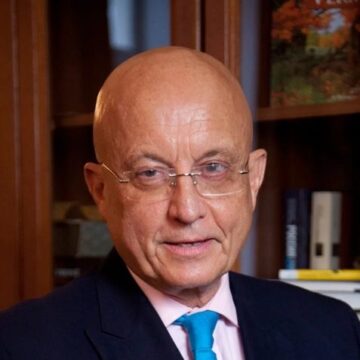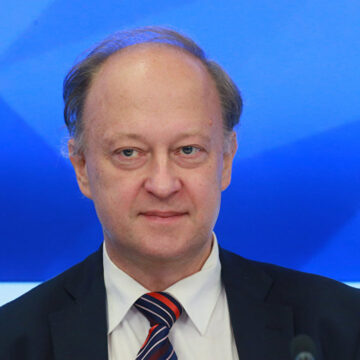Online in-depth discussion based upon the ideas and results of the political simulation game «International Crisis Management: Private Initiative» was run by the Council on Foreign and Defense Policy (CFDP) in cooperation with the Higher School of Economics (HSE, Moscow, Russia) on Wednesday, May 26, 2021.
The discussion was a final, summing-up event of the project “Managing an International Crisis Amidst the Global Uncertainty” arranged and executed by the CFDP, HSE and and the Center for Liberal Studies (Sofia, Bulgaria) with the support of the Presidential Grants Foundation. Simulation game was based on the scenario of an internationally agreed management of a hypothetical state/territory crisis by a non-state (private) organization in the context of growing international tension and intense competition, including information operations. The game involved 25 participants from Russia and abroad (Europe, Asia, North America) who tried to assess the possibilities of a non-traditional international cooperation in crisis resolution.
The issue of crisis management becomes especially acute in the context of growing introversion in the world, fixation of all players, including the largest, on their own numerous problems, as well as the increasingly obvious dysfunction of international institutions. The motives that previously forced influential powers to take on the functions of crisis managers (from idealistic to expansionist and mercantile) are weakening.
Distinguished experts discussed the following problems:
- To what extent is it possible to preserve the concept of «solidarity» in international practice in the context of the general growth of protectionism (in a broad, not only economic sense)?
- Does the crisis of international institutions and the decline of states’ willingness to take on an extra burden open up opportunities for non-state players, so called «contractors»? Are interstate agreements on delegating the functions of crisis managers to nontraditional actors (private / non-governmental structures) imaginable?
- Can we consider a possibility of “contract law” in addition to the international law — ad hoc solutions tied to the current problem as a basis for resolving specific crises?
- How unshakable is the principle of sovereignty and is it inextricably linked to the consistency of the state? In other words, are external actions possible to restore order in relation to countries or territories that are unable to resolve their vital problems?
The invited experts were:
- Sergei Karaganov, Dean, School of International Economics and Foreign Affairs, “Higher School of Economics” National Research University; Honorary Chairman, Presidium of the CFDP; Chairman of the Editorial Board, Russia in Global Affairs journal;
- Andrey Kortunov, Director General, Russian International Affairs Council; and
- Anatol Lieven, Professor, International Politics department of Georgetown University’s School of Foreign Service in Qatar; Senior Fellow, Quincy Institute for Responsible Statecraft.
The discussion was moderated by Fyodor Lukyanov, Chairman of the Presidium of CFDP; Editor in Chief, Russia in Global Affairs journal.
More about the project (In Russian).














